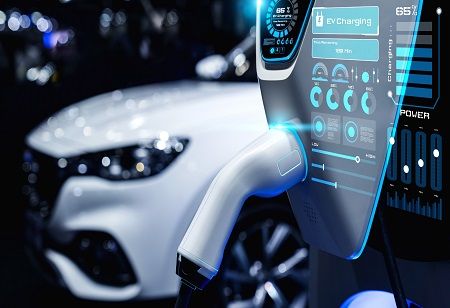
- Thailand invests THB 137.7 billion to boost EV, battery, and component production.
- “30@30” policy targets nearly one-third of vehicle output as zero-emission by 2030.
- Rapid expansion of charging infrastructure with over 20,000 units nationwide.
Thailand is moving forward with initiatives to grow its electric vehicle (EV) sector, intending to establish itself as a fully integrated production center for EVs and essential components in the ASEAN area. The program supports national objectives of reaching carbon neutrality by 2050 and attaining net-zero greenhouse gas emissions by 2065.
With the “30@30” policy, the nation intends for zero-emission vehicles to account for at least 30% of total production of passenger cars and pickup trucks - approximately 725,000 units - by 2030, along with 675,000 electric motorcycles.
The National Electric Vehicle Policy Committee (EV Board), led by Deputy Prime Minister and Finance Minister Pichai Chunhavajira, has recently assessed advancements in promotional initiatives. The Board of Investment (BOI) states that since its inception, and up to June 2023 investment incentives have been assigned to 169 projects totaling THB 137.7 billion (US$ 4.2 billion) for EV production, batteries, components, charging and battery swapping stations.
This included 21 battery electric vehicle projects totaling THB 41.077 billion for a total annual production capacity of 386,000 units and 16 electric motorcycle projects totalling THB 990 million, and a total annual production capacity of 810,000 units. Three initiatives for electric buses and trucks have been authorized, encompassing 4,835 units each year and an investment of THB 2.2 billion.
Also Read: Indonesia Aims for EV Battery Lead With $8B Global Investment Plan
Battery manufacturing holds the biggest portion, featuring 53 initiatives worth more than THB80 billion. This includes 27 initiatives for EV batteries totaling 23,876 MWh and 26 for various other sectors with 50,402 MWh. Moreover, 42 projects target essential elements such as traction motors, battery management systems, drive control units, chargers, converters, inverters, harnesses, cooling systems, air conditioning systems, and EV charging equipment, amounting to THB 6.521 billion.
The charging infrastructure is growing with 29 initiatives totaling THB5.562 billion, delivering 20,080 charging units, which feature 7,360 fast chargers. On the demand side, the government's initiatives to promote EVs, such as subsidies and tax reductions under the EV3 and EV3.5 programs, have strengthened the local market.
By June, 29 brands had signed up for benefits that included 209,623 vehicles. The Excise Department has allocated THB11.3 billion for 93,774 electric vehicles under EV3. The Automotive Institute reports that as of July 2025, Thailand had approximately 218,510 registered electric vehicles and 74,411 electric motorcycles.

